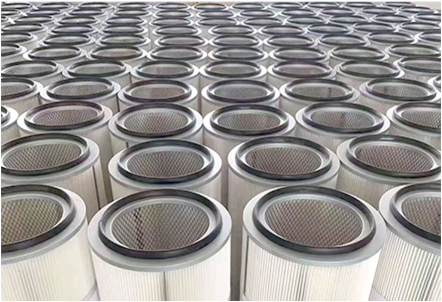 Tel:
+8615930870079
Tel:
+8615930870079
Sep . 15, 2024 17:03 Back to list
cartridge oil filter
Understanding Cartridge Oil Filters Importance and Benefits
Oil filters play a crucial role in maintaining the health of an engine. Among various types, cartridge oil filters have gained popularity due to their effective design and performance. In this article, we will explore what cartridge oil filters are, how they work, and why they are essential for vehicle maintenance.
What is a Cartridge Oil Filter?
A cartridge oil filter comprises a cylindrical filter element contained within a metal or plastic housing. Unlike conventional spin-on filters, which are permanently attached to their base and replaced as a single unit, cartridge filters allow for the replacement of the internal filter element while retaining the original housing. This design promotes sustainability, reduces waste, and can potentially lower replacement costs.
How Do Cartridge Oil Filters Work?
The primary function of any oil filter, including cartridge filters, is to remove contaminants from engine oil. As oil circulates through the engine, it picks up dirt, debris, and other impurities. A cartridge oil filter uses a filtration medium, often made of pleated paper or synthetic materials, to trap these particles.
When oil enters the filter, it flows through the filter element, allowing clean oil to pass through and return to the engine. The contaminants accumulate within the filter, ensuring that only purified oil returns to lubricate engine components. This process not only protects the engine but also helps maintain optimal performance and efficiency.
Benefits of Cartridge Oil Filters
cartridge oil filter

1. Environmental Friendliness One of the most significant advantages of cartridge oil filters is their eco-friendliness. By using a reusable housing, these filters generate less waste compared to traditional spin-on filters, contributing to a more sustainable approach to automotive maintenance.
2. Cost-Effective While the initial cost of a cartridge oil filter may be slightly higher, the ability to replace just the filter element can lead to savings over time. Additionally, many manufacturers design their cartridge filters for easy installation, reducing labor costs associated with oil changes.
3. Enhanced Filtration Cartridge oil filters often feature advanced filtration technology that can capture smaller particles than conventional filters. This capability ensures better protection of the engine, reducing wear and prolonging its lifespan.
4. Improved Oil Flow The design of cartridge oil filters typically allows for a more laminar flow of oil, which can lead to improved oil circulation throughout the engine. This can enhance overall performance, particularly in high-performance vehicles.
5. Ease of Maintenance Many drivers appreciate the ease of maintenance that cartridge oil filters offer. The straightforward replacement process means that even those with minimal mechanical knowledge can perform regular oil changes without difficulty.
Conclusion
Cartridge oil filters represent a modern solution for effective engine protection and maintenance. Their eco-friendly design, cost-effectiveness, and enhanced filtration capabilities make them an excellent choice for vehicle owners seeking to optimize their engine's performance while minimizing their environmental impact. Regular oil changes and timely replacement of cartridge filters are essential practices that can lead to a longer, healthier life for an engine, ensuring that it remains reliable for years to come. By understanding the importance of these filters, vehicle owners can make informed decisions about their maintenance routines, contributing to the overall health of their vehicles.
-
Types and Applications of Air Filtration CartridgesNewsJul.28,2025
-
The Role of Gas Turbine FiltersNewsJul.28,2025
-
Mastering Air Filter Cartridge UseNewsJul.28,2025
-
Advanced Turbine Filters for Modern Gas TurbinesNewsJul.28,2025
-
Cellulose Air Filter Cartridge Advantages in Dust FiltrationNewsJul.28,2025
-
Cellulose Filters for Air Particle ReductionNewsJul.28,2025

 Email:
Email:





